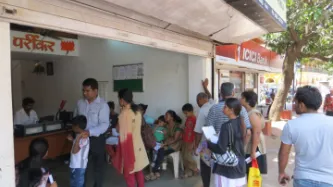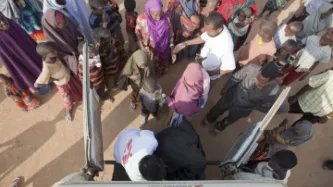Search
Content type: Long Read
The global COVID-19 health crisis not only induced a public health crisis, but has led to severe social, economic and educational crises which have laid bare any pre-existing gaps in social protection policies and frameworks. Measures identified as necessary for an effective public health response such as lockdowns have impacted billions workers and people's ability to sustain their livelihood worldwide, with countries seeing unprecedented levels of applications for welfare benefits support,…
Content type: Long Read
Social protection programmes can be broadly understood as government support for individuals to meet basic human needs, protecting citizens from the “economic risks and insecurities of life”. These policies and programmes are essential to reducing the lifelong consequences of poverty and exclusion. Programmes like cash transfers – including child grants, school meals, skills development and more – help connect families with health care, nutritious food and quality education. To ensure that…
Content type: Long Read
This piece was last updated in June 2021.
In many countries, access to social protection (such as welfare programmes or healthcare) is made conditional on producing a form of identification (“ID”). But obtaining a recognised and accurate ID is often a process riddled with discriminatory designs, bureaucracy and technical failures that prevent individuals from accessing the services they are entitled to. Even when people eventually get an ID, it might not accurately reflect who they are,…
Content type: Report
It is common for families with no recourse to public funds who attempt to access support from local authorities to have their social media monitored as part of a 'Child in Need' assessment. This practice appears to be part of a proactive strategy on the part of local authorities to discredit vulnerable families in order to refuse support. In our experience, information on social media accounts is often wildly misinterpreted by local authorities who make serious and unfounded allegations…
Content type: News & Analysis
Privacy International today is proud to announce our new project, Aiding Privacy, which aims to promote the right to privacy and data protection in the development and humanitarian fields. Below is an outline of the issues addressed in our new report released today, Aiding Surveillance.
New technologies hold great potential for the developing world. The problem, however, is that there has been a systematic failure to critically contemplate the potential ill effects of deploying technologies in…




